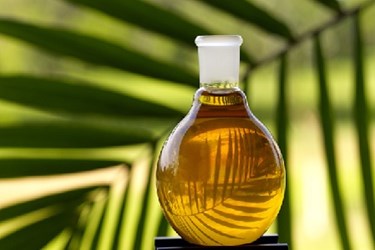Nestlé And Unilever Among Major Food Manufacturers Making Pledges To Save Palm Trees
By Karla Paris

Some of the world’s largest food making companies are integrating independent, corporate standards committing to sustainability that go above and beyond
We’ve seen more and more discussion about the use of palm oil and probably have heard the efforts led by consumers for food manufacturers to eliminate the use of palm oil. What you may not know is that many major food processors have been advancing sustainable palm oil programs during the last several years. While the job isn’t finished, there has been progress. Manufacturers are working closely with suppliers, customers, partners, and non-governmental associations to promote the development and use of sustainable palm oil.
The Union of Concerned Scientists, which began as collaboration between students and faculty members at MIT in 1969, is an alliance of more than 400,000 citizens and scientists. The group recently evaluated manufacturers’ performance measuring commitment to deforestation-free, peat-free palm oil. Here is just a sampling of what they found:
Nestlé — Brands with palm oil include Butterfinger, Toll House, and PowerBar
Nestlé has developed a policy and committed to not source any oil that has led to deforestation (including protections for High Carbon Stock, High Conservation Value, and peat). It is also working to trace its palm oil back to the plantation level, has a process for verifying it is meeting its commitment, and is regularly reporting on the progress it has made to date.
Unilever — Brands with palm oil include Ben and Jerry, Popsicle, Creamsicle, Slimfast Snack Bars, and Klondike
The company has committed to source palm oil that protects both High Conservation Value and High Carbon Stock forests, as well as to fully protect peatlands. It has also committed to tracing its palm oil back to the mill level and is asking its suppliers to report their Greenhouse Gas Emissions (GHG). Unilever is also reporting on its time-bound plan to source 100 percent Certified Sustainable Palm Oil (CSPO) by 2015 and 100 percent deforestation-free, peat-free palm oil by 2020 at the latest. Given that its policy is new, the company is not yet sourcing palm oil that meets its current standards, though it is sourcing 97 percent of its palm oil from Green Palm and 3 percent from segregated CSPO.
Mondelēz International — Brands with palm oil include Oreo, Nutter Butter, Ritz Crackers, and Honey Maid
Mondelēz plans to purchase 100 percent CSPO by 2015 maintaining a commitment to 100 percent transparently sourced, traceable palm oil which does not contribute to deforestation or loss of peatland by 2020. Currently, Mondelēz sources 100 of its percent total palm oil from Roundtable on Sustainable Palm Oil (RSPO) GreenPalm or segregated schemes working towards using 100 percent segregated CSPO by 2015.
Danone — Brands with palm oil include Danimals
Danone has committed to sourcing 100 percent segregated CSPO by the end of 2014. While this nominally recognizes the importance of forests, it makes no permanent commitment to their protection. Additionally, there is some conflicting information in its most recent Approved Code Of Practice (ACOP) about the amount of oil currently sourced. Currently, Danone sources 100 percent of its total palm oil from RSPO GreenPalm or segregated schemes working toward using 100 percent segregated CSPO by 2014.
This is not a comprehensive list of food manufacturers focused on palm oil sustainability. Others, like Kellogg’s, Campbell Soup, PepsiCo, General Mills, Heinz, ConAgra Foods, Kraft Foods, and more are all in when it comes to solving the palm oil — and sustainability — problem facing the market today.
